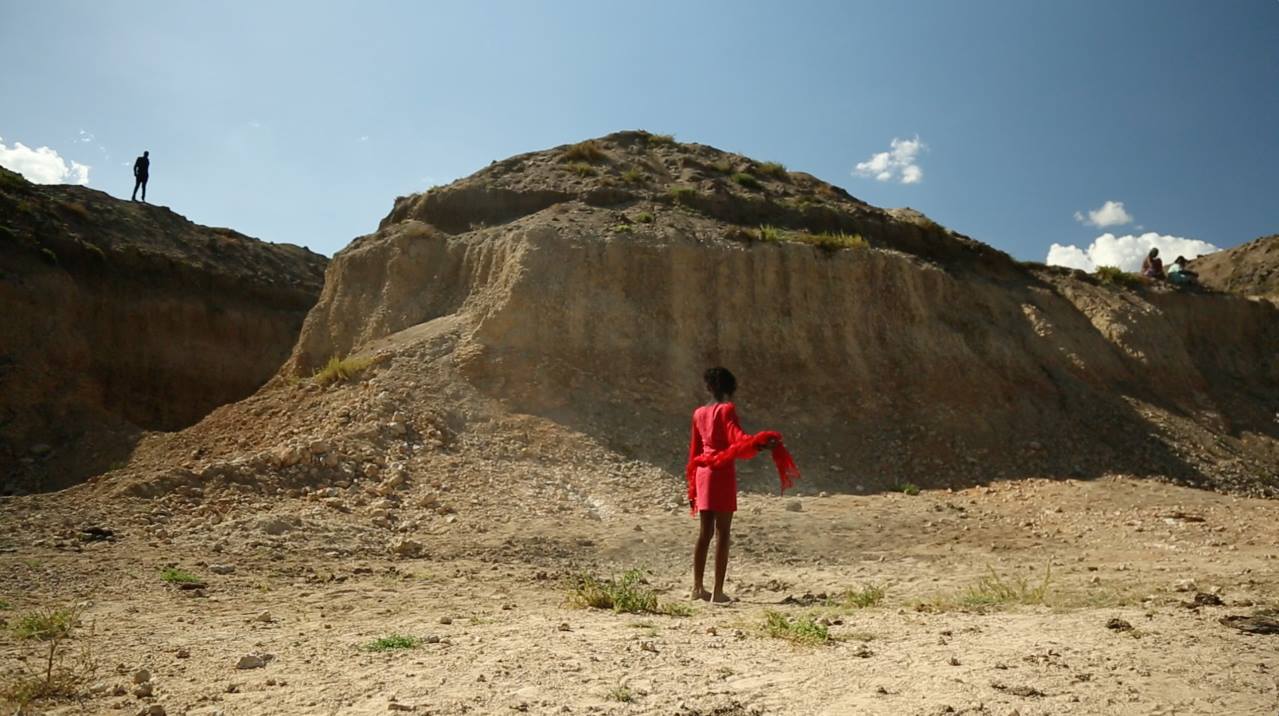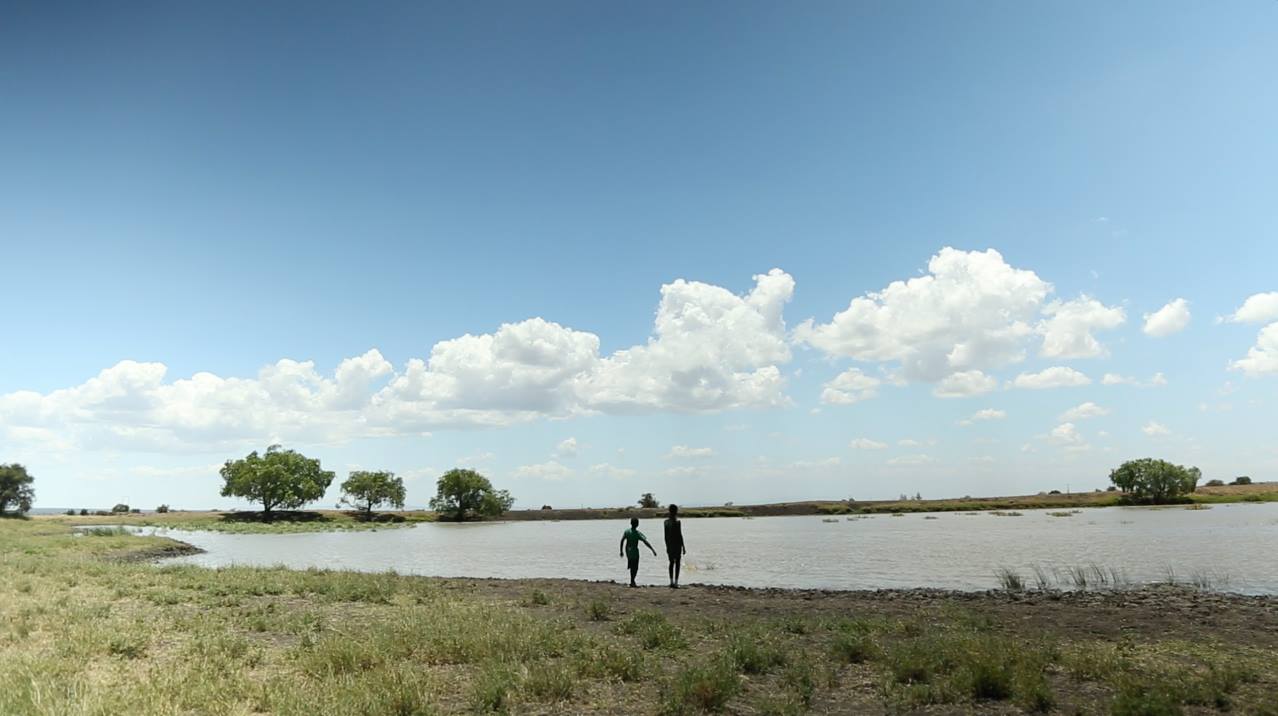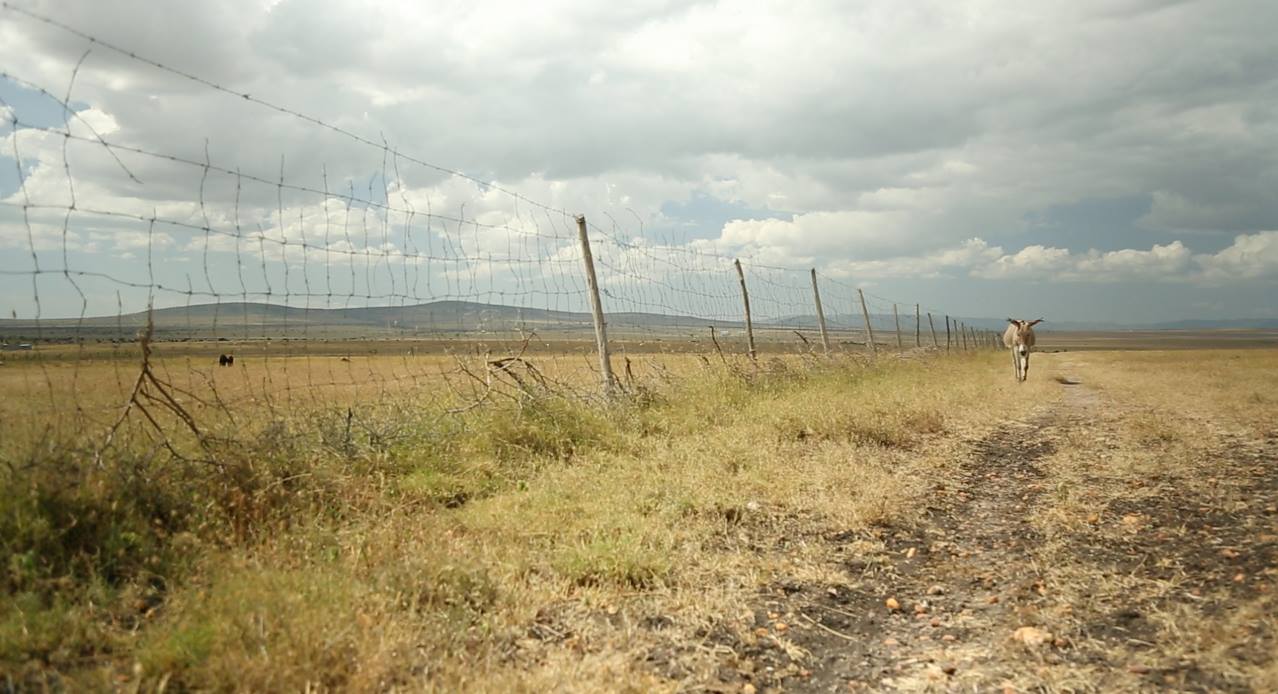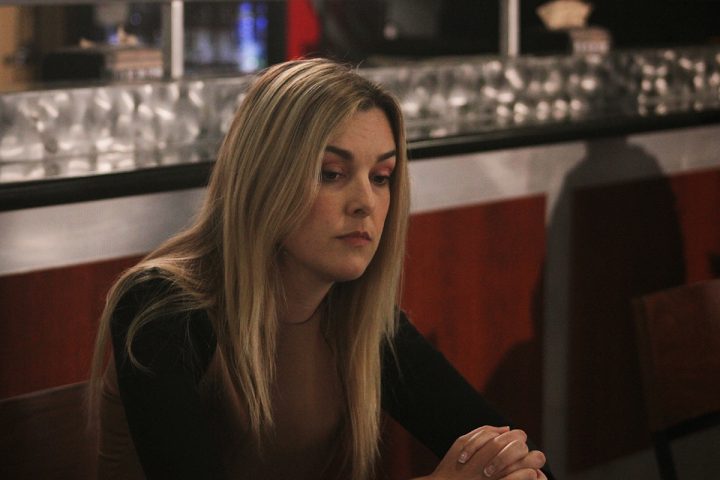#DirectedByWomen team member Natalie Makovora recently had a chance to talk to Yale grad Michelle Mboya, director of the award-winning short film The Camel’s Back, which is currently going around the festival circuit. The film follows a 13-year-old Kenyan girl, Susan (Tatiyana Gati), who believes she only has one day left to live and wants nothing more than to find Diani Beach before she passes.
DBW: Tell us a bit about yourself and how you came to develop The Camel’s Back.
MM: I am from Kenya. I am a woman. I like telling stories—I always have. I’m not actually very good at telling stories. I never really learned. I didn’t start making films until college. I just haven’t been honed in that field so much. I went to a British high school which is very rigid in academics, focused on three subjects: math, history and economics. So, when I came to Yale I thought I would focus somewhere in math, history or economics — and I sort of did, I majored in economics I ended up double majoring in film studies when I took a first year film course and I loved it. Most of my courses and time at Yale was very much academic film theory, I watched a lot of old movies and sort of realized my tone, and style and voice when I took an Italian old school cinema class and fell in love with Italian new realism and De Sica and his movie Bicycle Thieves, which is my favourite and inspired me to consider this field as something I want to do. The point I’m making is, all through college I wasn’t actually making film. I was just studying it. And then your senior year as a film major you have to do a thesis which could be a lot of things. One of them is to write and direct a narrative film. So, that’s how I came to develop The Camel’s Back. It was for that requirement. It was a year long project where you spend the first half writing and working with your classmates — there were four other people and myself doing pre-production —- then in the spring you make it and edit it. So, yeah, that’s how it came to be. It was kind of a wild decision to shoot it in Kenya when I was based in New Haven and made my project quite high [in price] compared to the average Yale thesis budget, but quite low for any other film budget. I shot it over my spring break and edited after that.

DBW: What is it about this particular story that is so important to you and why did you want to tell it?
MM: I know it sounds really cliche, but I felt like I didn’t really have a choice. I really tried writing something based in New Haven. I came up with a bunch of different ideas, but, as I was writing, nothing was working and it was all sort of boring and I thought if I’m not interested in it, why would anyone else be interested in it? And then I just was like, you know what? I’m just going to write something not barring the limitations of producing it and then go from there. And so, two things that came to were location and what locations were important to me. One is a ranch that my family owns and the beach, which is Diani Beach. Those are places I love and grew up admiring so I started there. Then I knew it had to be something about a girl, something coming-of-age. I work a lot with girls, a lot of my work is for women especially young girls, and a lot of the stories I hear when I volunteer and work with girls from Kenya, or from all backgrounds they really move me, they really affect me. I feel like people in our community don’t really understand what it is to be a girl in a poor country where pretty much everything is set against you. And so the story just sort of came. I didn’t plan it, I didn’t have this idea set in to do this. It just sort of came this idea of feeling like you can’t go on which I think is something that girls, regardless of your income status, can feel everywhere. And just feeling that general human desire to be elsewhere than where you are.
DBW: Yeah, I noticed that really came through in the film. It felt like an authentic story. It felt really personal and I really felt like I was experiencing what Susan was experiencing. It’s so relatable, that feeling of being a girl and feeling that isolation. The film touches on quite a few themes like life, death, love, and abandonment — but one thing that also really came through was the theme of mental illness. That’s something in North America that we’re still trying to break the stigma around, but we never really get to see stories about people in other countries suffering from mental illness. It’s just a thing that we don’t think about. So that really came out as a universal story to me when I was watching The Camel’s Back.
MM: Yeah! It’s definitely a thing, people don’t talk about it. And the reason I decided to dig deeper on that theme was my sister, who is younger than me and also at Yale and is just like a brilliant mind, works a lot in the field of mental health. That’s her passion. She also works with girls and she always comes back to me and she can see that these people are struggling with no resources. There’s no dialogue about it, there’s very limited access to support, you have to be very wealthy to get it. And you know, people will feel that there’s something a little bit off about you mentally and will think that you’re a crazy person or that there’s a demon inside you or your deranged or something wild like that. So what happens is you’re isolated in your sadness and your instability and I think that’s very scary for a young person — a young woman especially — and I pushed the theme a little bit more because I love fantasy and and I love magical realism as a style of storytelling. You can push that when you’re focusing on the mind and where the mind is going and how far your mind can take you, especially when you’re alone.
DBW: Also the feeling of being a teenage girl and feeling like you know everything and that you’ve lived your entire life and that there’s not really much more there and what else could there possibly be? I think that really came through as well.
MM: Yeah, as a teenage girl it always feels like the end of the world. It always feels like things are going to come crashing down on you, the world’s going to stop spinning. I remember that feeling in my life, you know that feeling of “ugh, I just can’t do it anymore.” And the truth is that’s when you’re starting to grow up, those things are usually the learning points for becoming more mature.

DBW: In the film we understand that Susan’s been taking care of her brother [Mark] for some time, but I got this sense that the tables turned a little bit and Mark was kind of taking care of her. Not really getting into spoilers but the things that he does for her, he’s kind of this fearless little boy who doesn’t really understand what’s going on with his sister but is still there for her and I really appreciated that about the film.
MM: Yeah, thanks for that. He is sort of the heart of the story for me. I love his character and I love the actor (Chrissantos Otio) that plays him —
DBW: Yeah, he was adorable!
MM: I thought he was the heart of the film and his story felt personal for me. I have two siblings who are my whole life and I try to be a caretaker for them. Just their presence is such a good source of love and comfort. They’re such a big presence in my personal life and I think that’s why I put that in the script. Susan feels very alone right now and she can’t take care of him and doesn’t want him to be around her. But by the end of the film her paradise is really just about how she needs him just as much as he needs her. It’s just another reminder that she’s not totally alone all the time even though she feels that way.

DBW: As a first time director working with actors who have never acted before, what were some challenges you faced?
MM: The sad thing about film is that you can never really perfectly plan for anything. You just rely on so many people and factors to be perfect. Usually it’s hard to get a perfect combination. I was dependent on weather, I had so many crew and extras and you need everyone to be on their best behaviour. I was actually filming during the rainy season in Nairobi but it didn’t even rain once so I was really, really grateful. But it was super, super hot, so things like batteries running out, the cameras overheating and the sound system not working would stop us a lot, but you can’t really control that. I only had two proper actors (the “Tall Man” and “Witchdoctor”). There was one scene where I had three guys who could not act so I had to cut out an entire scene. I definitely learned a lot, I had a great cinematographer [Daniel Muchina] who guided me a lot with the more technical stuff. There’s stuff where I think “oh, I could have done this better,” but it’s my first film so I’m happy.
DBW: It turned out great. You won Best East African Short Fiction film at the Mashariki African Film Festival!
MM: That was a big win for me, personally. It’s not a huge festival, but it was validating. I’ve been keeping it on the film circuit and it also won Best Senior Thesis at Yale.

DBW: Are you working on anything right now or another project brewing in the back of your mind that you want to work on?
MM: I always have projects brewing in the back of my mind, but I’ve actually spent the past year working on one project. I’m writing a feature-length based in Nairobi and New York set in 1960. It’s a period piece — which everyone says don’t do, because it’s harder to get made and is expensive — but I’m doing it anyway. It’s about my grandfather and his best friend, who was a New Yorker, and the work they did. My grandfather was a politician and freedom fighter and Kenya was not a free country at the time. It was a colony of England. My grandfather, in the middle of his political ambitions and fighting for freedom, decided to start this thing called an airlift to get as many Kenyans out of Kenya and into the U.S. in sort of little missions to study there because the English were oppressing our institutions. Very few Kenyans could study to get higher education. It was becoming increasingly clear that we were going to get independence in the next few years and his fear was that we would have an independent country with no educated people. So, he and his friend William went around the U.S. begging for scholarships and they got about one thousand. It’s the story of them getting the money for the aircrafts which ended up being funded by John F. Kennedy and it’s a really, really amazing story. It’s how Barack Obama’s dad came to America. So, I’m writing that. My next step is trying to produce it. I think I might try to produce and direct it on my own but if a better producer and director came along I would say “please go on and do it.” It’s a daunting project in terms of how much it would cost and where I want it to go.
DBW: That’s an amazing story! And such a unique perspective because we rarely get to see films made by women and people of colour. Are there any women directors who have inspired you?
MM: In terms of female directors who inspire me, there aren’t many because there aren’t as many women making movies as men. But, when I see someone like Ava DuVernay making a splash like she is, it gives me so much joy and so much hope for the future. This is an African-American woman who has not grown up in film and is making movies that matter, that show a different side of the world. People like it and it’s watched. That idea that people don’t like movies without white male leads is becoming untrue, especially with millennials and Generation Z. She’s definitely a big inspiration for me.
DBW: Where can people watch The Camel’s Back? Are you screening anywhere else?
MM: It’s actually not available online yet, because it’s still doing festival rounds and you can’t submit to festivals if it’s already been publicly viewed. I suspect in the next couple months, when I’m finally done sending it to places, I will put it online and anyone can watch it.
DBW: Thank you so much for talking to me.



![Maija Tailfeathers, Rachel Talalay [Photo Credit: Cate Cameron]](https://directedbywomen.com/wp-content/uploads/2017/07/onthefarm_rachelonset-2-720x479.jpg)

You must be logged in to post a comment.